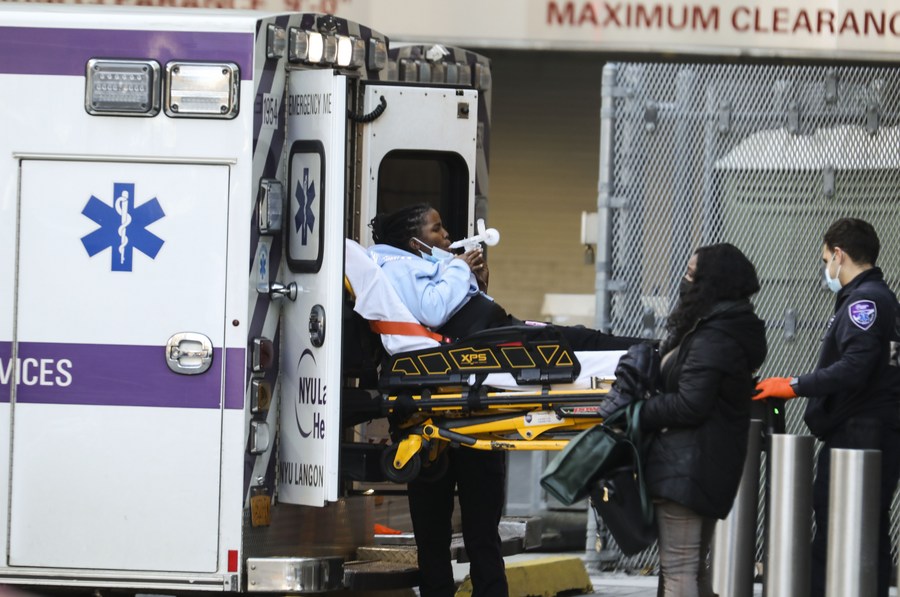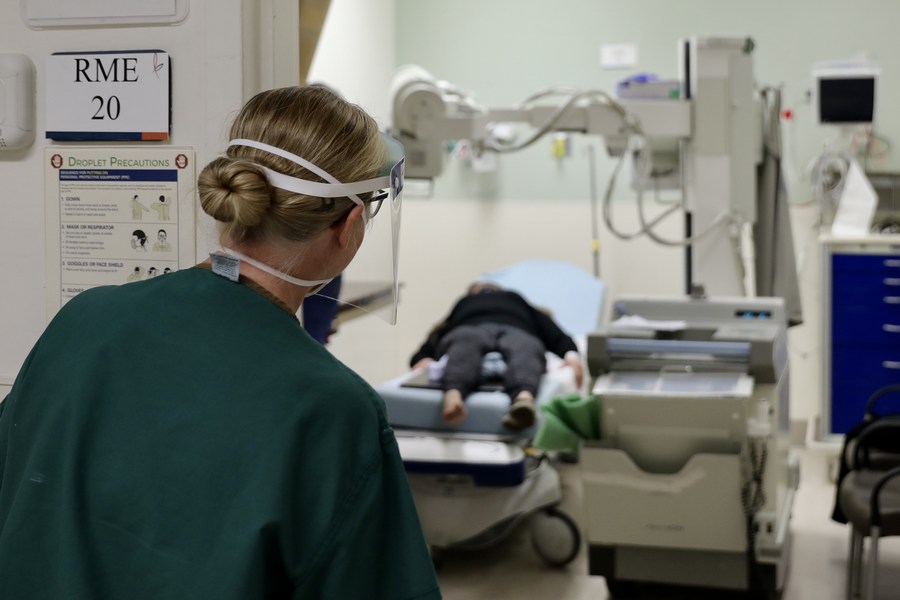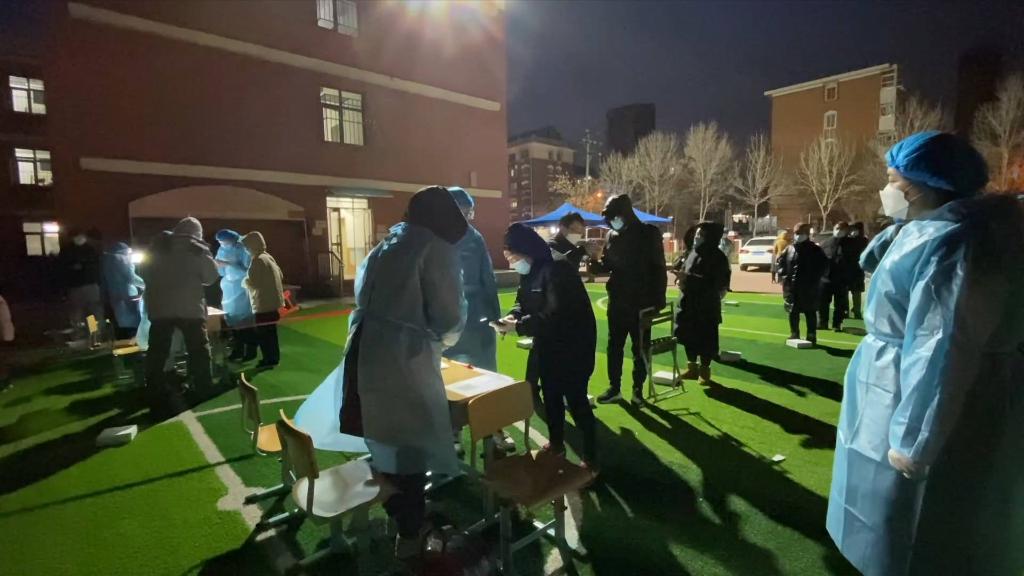
Medical workers carry a patient to a hospital in New York, the United States, Dec. 13, 2021. (Xinhua/Wang Ying)
The sheer numbers of infections caused by the Omicron variant could still overwhelm the U.S. health care system.
NEW YORK, Jan. 9 (Xinhua) -- As the highly infectious Omicron variant takes command amid the lingering pandemic, the most significant infection surge of COVID-19 to date is emerging in the United States, putting additional pressure on an overtaxed health care system.
"We have seen an incredible proliferation of the virus in hospitals, such that we went from a place where virtually no county in the country was at risk of exceeding its capacity to well over half are now," Jeremy Faust, an emergency physician at Brigham and Women's Hospital in Boston, was quoted by ABC News on Sunday as saying.
Although preliminary global studies indicate that the Omicron variant may cause less severe illness than prior variants, health officials said that the sheer numbers of infections caused by the new variant could still overwhelm the health care system.
"The burden on the health care system is made worse by nationwide staffing shortages and hospital capacity at elevated levels as many other patients seek care for non-virus related reasons," said the ABC News report.

Photo taken on Jan. 22, 2021 shows a healthcare worker watching a patient in the "COVID Area" of the Beverly Hospital in Montebello City, California, the United States. (Xinhua)
"Due to the tsunami of Omicron cases, the volume is affecting our health and community service," Rebecca Weintraub, assistant professor of Global Health and Social Medicine at Harvard Medical School, was quoted as saying. "While we are very lucky hospitalizations have decoupled, the vast spread is alarming."
Late last month, Anthony Fauci, chief medical adviser to the White House, pointed to the disparity between cases and hospitalization as a "strong" indicator that Omicron is less severe, as the United States has not experienced a concomitant increase in the relative percentage of hospitalizations.
"Even if you have a less of a percentage of severity, when you have multi-multi-multi-fold more people getting infected, the net amount is you're still going to get a lot of people that are going to be needing hospitalization. And that's the reason why we're concerned about stressing and straining the hospital system," Fauci told ABC News earlier this month.
The Omicron variant made up around 95.4 percent of new COVID-19 cases in the United States for the week ending Jan. 1, the U.S. Centers for Disease Control and Prevention said in an updated estimate published on Jan. 4.
Only two regions of the country -- New England and part of the Midwest -- had yet to reach 90 percent locally, said the agency, noting that the Delta variant, which was dominant up until a few weeks ago, made up nearly all the other cases. ■










